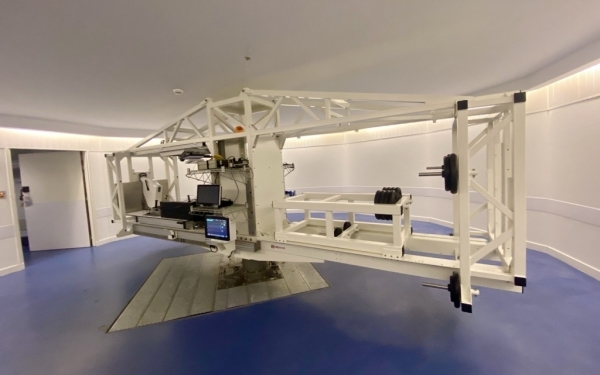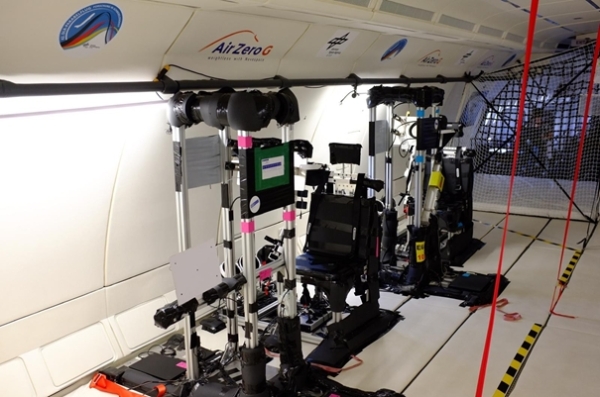Medical Technology Systems - Research
Topics and areas
Medical technology is not only a highly relevant and interesting field of research, but due to demographic change in Germany, Europe and most industrialized nations, it is also particularly relevant for a broad field of medical technology applications, ranging from prevention to acute medical care, surgery, rehabilitation and nursing to clinical and outpatient care for people with disabilities or the elderly. There are many questions that need to be addressed and answered by a well-balanced research agenda, which on the one hand offers sufficient freedom for basic research and on the other hand keeps applicability in mind. For applicability, not only the technical solution and its power to change are relevant, but above all its social and individual acceptance. This applies in particular to rehabilitation systems and assistance systems that are in direct contact with people, i.e. that physically interact or cooperate with them. Research and development in this field can therefore only be successful if all facets that these special challenges entail are taken into account through interdisciplinary collaboration in basic and applied research.
Research topics of the Department of Medical Technology Systems are therefore broadly based and range from basic questions on the requirements for human-machine interfaces to the use of psychophysiological data for the recognition of the state and intention of a person interacting with or being supported by a medical technology system to the research and development of technical solutions for the processing and use of such data for multimodal and multisensory medical technology interaction and assistance systems.
Methodologically, the focus is on the use and further development of signal processing methods and machine learning, not only to evaluate multimodal psychophysiological data from humans and to learn models, but also to optimize technical systems and interfaces as automatically as possible through explicit or implicit feedback from humans. This is a basic prerequisite for more individualized support or rehabilitation of users. The research and development of new machine learning methods that enable the integration and use of human feedback is therefore of central importance.
Furthermore, research focuses on medical systems that act (semi-) autonomously, i.e. robotic systems that gain insight into the state and intentions of humans via embedded processing of psychophysiological data and learn to provide optimal support themselves. Issues such as efficient "onboard" processing and learning on such data, as well as automatic acquisition of training data while the systems are in use, are central here and find application, for example, in individualized rehabilitation using exoskeletons after, e.g., stroke.
In summary, the main research goal is to explore and develop reliable and intuitive human-robot interaction solutions that are applicable in realistic scenarios. The focus is on the development of new methods, especially new machine learning methods and scenarios for different application areas of such systems in medical technology. In particular, basic questions, such as neuroscientific questions about the plasticity of the brain, the processing of important information, motion planning or factors influencing the cognitive resilience of humans in complex interaction scenarios are to be investigated with the tools of machine learning methods.
Research topics and areas include in detail:
- Processing and learning on psychophysiological data, such as the:
- human electroencephalogram,
- electromyogram,
- eye movement data,
- motion data,
- facial expression,
- speech,
- and multisensory and multimodal combinations of such data.
- Development of multisensory and multimodal interfaces for implicit and explicit interaction, such as:
- brain-computer interfaces,
- speech assistance systems,
- systems for emotion recognition on multimodal data, such as speech, facial expressions or gestures, or
- tactile interfaces.
- Control and feedback control approaches for robotic assistance systems that take into account human state and intention, on topics such as:
- intuitive user interfaces,
- safety control on different levels, such as hardware solutions, motor drivers up to high-level solutions, or
- kinematic and dynamic control of robotic assistance systems, taking into account the state and intention of the human being.
- Embedded, distributed systems for control, data processing and evaluation of psychophysiological data in medical systems, based on e.g.
- Parallel processing using FPGAs or<
- Microcontrollers for sensor processing and motor control.







